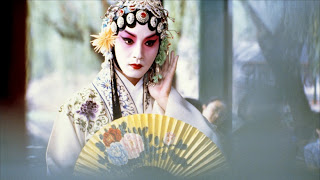Despite considerable obstacles and a (very) deliberate pace, Tomas Alfredson's adaptation of Le Carre's spy classic is a triumph, through and through. The ensemble is stellar, the production values outstanding (how did AMPAS pass this over for Art Direction?), and the film's slow burn builds to an understated, yet hugely satisfying conclusion.
Its scope is massive, yet this never detracts from what is, ultimately, a very human story. Kaige Chen's film masterfully covers decades of Chinese history in addition to the lives of the three main characters, and makes it all seem easy.
His pacing is steady, yet he knows how to up the story's intrigue with a brilliant sense of timing. The dinginess and darkness of Cold War-era London comes to life thanks to his smart, sticky visuals. In a story with so much information to dispense, he helps it all flow together with expert craftsmanship.
As the only definitive lead in Farhadi's film, it's up to Moadi to more or less carry the whole film, and he does it impeccably. Whether he's verbally sparring with his wife in one of the many high-voltage dialogue exchanges, or quietly reigning in his frustration and sadness, he delivers in spades.
The performance that earned Laura Linney her first Oscar nomination is also one of her very best. As Samantha, Linney's mix of confusion, tenderness, and anger all flow together to create a beautiful, authentic character. In a film filled with strong individual parts, Linney still manages to stand out as the highlight.
It's a film where even the smallest roles have key importance to the narrative, and despite some limited screen time, even the small roles make their marks. Everyone ranging from Kathy Burke's Connie Sachs to more prominent figures like characters played by Gary Oldman and Mark Strong deliver top-flight performances, working beautifully in-sync, whether they're sharing the screen or not.
What's immediately apparent from the opening scene of Farhadi's film is that the man knows how to write a good argument. And given all of the conflicts present in A Separation, that skill gets put to good use over the course of the film's two hours. Though the characters' logic can seem strange or archaic at times, the truth of Farhadi's writing still comes through. The verbal battles keep your eyes glued to the screen, as do the occasional moments of silence.
Gu was faced with a big challenge in DP-ing Chen's sprawling film, yet his efforts paid off beautifully. Six decades of history come together under his fluid, roving camera movements and soft, hazy lighting. It's precisely this photography that allows for the film to achieve its strong mix of narrative broadness and emotional intimacy.








No comments:
Post a Comment